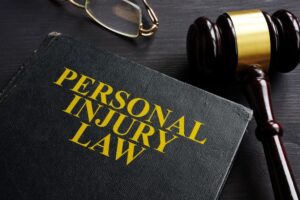
Depositions are a highly stressful part of any lawsuit, where you will be expected to be put on the spot and answer numerous questions over the course of several hours. Trying to be deposed alone is a bad idea because skilled attorneys can take advantage of you by asking you questions meant to elicit answers that they can take out of context.
When you are facing any stage of a lawsuit, you need a lawyer on your side. When you want to win, you need a skilled and professional lawyer on your side. Contact John Foy and Associates today for a free consultation and case review.
What Is a Deposition?
During a lawsuit, both sides have an opportunity to take several months to build their case by obtaining evidence from the other party. One of the most important parts of this process is the deposition. A deposition is a process where you will answer questions from your lawyer and the other party’s lawyer under oath so that the lawyers know how you will testify at trial.
At the deposition, you will be asked questions ranging from questions about your background, such as the name of your spouse or where you went to high school, to questions about the events that lead to the lawsuit. You will also be asked questions by the opposing lawyer that are meant to elicit information about you that can be used to discredit you in court, such as a criminal record.
Having a lawyer with you at your deposition is essential. Depositions can be an all-day affair, and without someone there with you and someone to help you prepare, you might slip up and say something devastating to your case. Anything that you say at your deposition can be used as evidence at your trial, so it is of utmost importance that you hire a skilled lawyer to help you.
Get the strong arm
How Can a Lawyer Help You at a Deposition?
Your lawyer can help you during your deposition in three key ways:
- First, your lawyer can help you prepare answers to the questions that the other lawyer is likely to ask.
- Second, your lawyer can help you by asking their own questions of you at the deposition so that all of your evidence is on the record.
- Third, your lawyer can help you by objecting to questions that are legally deficient.
Your Lawyer Can Help You Prepare
The first important thing that your lawyer can do for you is help you prepare for how you can answer your questions. Most depositions will be somewhat similar, so your lawyer will be able to help you prepare well-crafted answers. The better the answers that you use, the better off you will be.
Everything that you say at the deposition can be used as evidence at the trial and can be used by the opposing attorney to contradict things that you say while testifying at trial. While you might think that you can prepare on your own, it is far easier to do so when you have the help of an experienced attorney that has been through hundreds of depositions.
Your Lawyer Can Help You by Asking Their Own Questions
Importantly, depositions are a part of the discovery process. Discovery is the process where you gather evidence to help prove your case. This is important because at the end of the discovery period, if the court finds that you have insufficient evidence, they can end your case right then and there through a process called summary judgment, and your case will never go to trial. One important way to get your evidence on the record is by testifying at your deposition.
While you can get all of your evidence onto the record through your answers to the other lawyer’s testimony, they will not help you. If you forget even one important component of your case, it can be enough to torpedo it. If you represent yourself, you cannot ask yourself questions at your depositions, so you need a skilled lawyer to do it for you.
Your Lawyer Can Help You by Objecting to Questions that Are Legally Deficient
Sometimes the other lawyer will ask you questions at your deposition that are not up to legal standards. Unfortunately, however, if you do not object to the questions at the deposition, you might lose your opportunity to do it later. This is where a skilled lawyer can help you out.
Unlike at trial, at the deposition, there are only a few reasons that you can object to questions. Most commonly, you will object if the questions are abusive or breach a privilege. Abusive questions are questions that are meant to “annoy, embarrass, or oppress” you while you are being deposed.
You may also object if the other lawyer’s questions are seeking to undermine a privilege. Privilege is a legal rule that allows you to refuse to disclose certain communications, such as between you and your attorney, doctor, or spouse. Your lawyer will be skilled enough to sniff these types of questions out before the other attorney can trick you into giving up too much privileged information.
Contact a Deposition Lawyer Today
If you are going to be involved in a lawsuit in any way, shape, or form, the first thing that you should do is contact a lawyer, especially if you are facing something as legally complex as a deposition. Lawyers train for years for this very purpose and exist to help you through complex legal topics that no layperson could be reasonably expected to understand.
If you are going to be deposed, you should contact a skilled and experienced attorney. “The Strong Arm” John Foy has almost thirty years of experience helping Georgians just like yourself. Contact John Foy and Associates today for a free consultation and case review.
(404) 400-4000 or complete a Free Case Evaluation form





